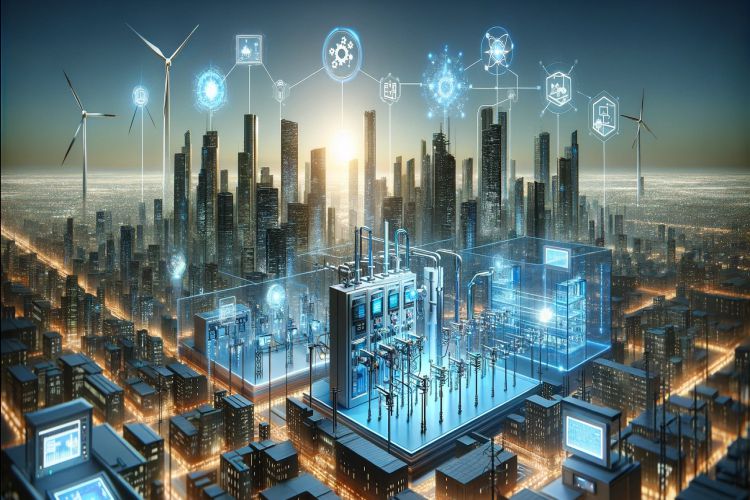 Electrification is rapidly becoming a cornerstone of modern society, driving significant advancements in technology, infrastructure, and environmental sustainability. As the push for energy-efficient solutions grows, electrification is becoming a key focus, transforming how we power our homes, businesses, and transportation.
Electrification is rapidly becoming a cornerstone of modern society, driving significant advancements in technology, infrastructure, and environmental sustainability. As the push for energy-efficient solutions grows, electrification is becoming a key focus, transforming how we power our homes, businesses, and transportation.
The potential of electrification to revolutionize our world is truly exciting, paving the way for a cleaner and more sustainable future. In this blog, we’ll discuss what electrification really means, explore its benefits, and see how it’s reshaping our everyday lives and industries.
Table of Contents
What’s the Scope of Electrification?
Electrification simply refers to the process of replacing the technologies that use fossil fuels with those that employ electricity. This transition is not limited to one sector but spans across various industries, including transportation, manufacturing, and energy generation. The scope of electrification is vast, encompassing everything from electric vehicles and renewable energy sources to smart grids and energy-efficient buildings.
The move towards electrification is driven by several factors, like the need to reduce greenhouse gas emissions and enhance the reliability of energy systems. Furthermore, electrification provides an opportunity to modernize infrastructure, making it more resilient and adaptable to the evolving demands of the 21st century.
Advantages of Electrification
Now, let’s discuss the benefits of electrification.
-
Environmental Footprint
One of the most crucial benefits of electrification is its potential to reduce environmental impact. By shifting from fossil fuels to electricity—particularly when generated from renewable sources—industries and consumers can drastically cut their greenhouse gas emissions. Additionally, electrified industrial processes are often more energy-efficient, further decreasing the overall environmental footprint.
-
Energy Efficiency
Electrification often leads to greater energy efficiency, as electric technologies tend to be more efficient than their fossil fuel counterparts. For example, electric motors generally surpass internal combustion engines in efficiency, transforming a greater proportion of energy into productive work.
-
Enhanced Reliability and Resilience
Electrification can enhance the reliability and resilience of energy systems. By incorporating advanced electrical instruments, devices, and equipment into the grid, we can create a more flexible and responsive energy infrastructure. Smart grids, for instance, utilise electrification to improve the management and distribution of electricity, reducing the risk of outages and enabling faster recovery from disruptions. This improved reliability is crucial in an era where energy demands are increasing, and the effects of climate change are becoming more pronounced.
-
Improved Public Health
Electrification also offers public health benefits by reducing air pollution and its associated health risks. Traditional combustion-based technologies emit pollutants that contribute to respiratory diseases and other health issues. By replacing these technologies with electric alternatives, we can improve air quality.
Applications of Electrification
The potential applications of electrification are diverse and far-reaching. In transportation, the adoption of electric vehicles is revolutionizing the automotive industry, offering a cleaner, more efficient alternative to traditional petrol and diesel-powered cars. In the energy sector, electrification is driving the growth of renewable energy sources, which are critical to achieving a sustainable energy future.
In the industrial sector, electrification is enabling the development of energy-efficient manufacturing processes, reducing the environmental impact of production while enhancing operational efficiency. For instance, electric furnaces and boilers are being deployed to replace fossil fuel-based equipment, resulting in significant reductions in emissions and energy consumption.
Get Ready to be a part of a Brighter and Greener Future
Electrification holds immense potential to transform our world, offering a cleaner, more sustainable way of powering our homes, industries, and transportation systems. By embracing electrification, we can achieve significant environmental, economic, and public health benefits, paving the way for a more sustainable future. Joining hands with reputable energy brands provides the expertise and innovation needed to drive the successful adoption of electrified technologies.
Moreover, their deep understanding of electrical instruments, equipment, and devices ensures that businesses can integrate electrification into their operations seamlessly.






